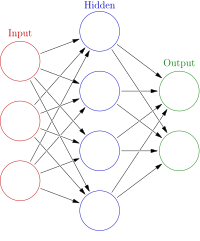
Photo from wikipedia
Ethiopia and China share a common educational agenda in cultivating and obtaining competent vocational graduates who fulfill the need of the modern, technologically advanced industrial workplace. Unlike most evidence, the… Click to show full abstract
Ethiopia and China share a common educational agenda in cultivating and obtaining competent vocational graduates who fulfill the need of the modern, technologically advanced industrial workplace. Unlike most evidence, the present study adopted Self-determination Theory to understand Ethiopian and Chinese higher Vocational education and Training (VET) college students’ learning motivation. Hence, this study recruited and interviewed 10 volunteers senior higher VET students from each setting to unfold their satisfaction with psychological needs. The study’s main finding affirms that although both groups felt the autonomy of choosing the vocational field they sought to master, their learning process was submissive to their henpecked teaching method, which ultimately restrained the participants’ feeling of competence for being enclosed in less practical training space. As per the study findings, we forward feasible policy and practical implications suggested for meeting the motivational needs of VET students and promoting learning stability.
Journal Title: PLOS ONE
Year Published: 2023
Link to full text (if available)
Share on Social Media: Sign Up to like & get
recommendations!